The Power










I am pleased to share this annual report, which highlights the value and impact of our School’s multidisciplinary research. Our leadership and expertise benefit not only the communities in which we live but also numerous sectors of our economy— wherever information is used to inform and make decisions. Moreover, it is our humancentered approach that sets the iSchool apart. We utilize the power of information to create sociotechnical solutions to real-world challenges, enhancing the diverse activities of daily lives.
The relevance of our teaching and research in all walks of life is reflected in the rapid growth of our programs and faculty. We have expanded to meet the strong demand for information professionals, doubling our enrollment and adding new degrees, such as the BS in information sciences and the BS in information sciences + data science. We have nearly doubled our faculty, and as a result, the scope of our research has significantly broadened. Our researchers address contemporary information issues in a variety of areas, such as digital libraries, library practice and policy, and youth culture as well as data science, human computer interaction, privacy and security, and artificial intelligence.
The importance of our research is evidenced in the federal, foundation, and corporate funders who award grants for our innovative work. It also is demonstrated by the prominence of our distinguished faculty, who are recognized for their contributions to the field and who guide the next generation of information professionals. Highlights of the past year include but are not limited to:
• Reducing gaps in community access to technology.
• Developing digital literacy tools to fight online disinformation.
• Helping libraries increase information literacy.
• Empowering people who are blind to safeguard private visual information.
• Mitigating the risks of environmental pollutants.
• Advancing bioimaging technologies.

• Making online learning more accessible.
• Improving the health of patients with kidney failure.
• Developing systems and best practices for health data management.
• Improving systematic reviews of scientific literature for risk assessment.
I hope this report allows you to become more familiar with our research, which enhances the quality of life for all individuals and makes a meaningful difference in our world.
“We utilize the power of information to create sociotechnical solutions to real-world challenges, enhancing the diverse activities of daily lives ”

Our faculty and staff are principal investigators on a portfolio of 56 projects totaling $30.1 million and co-investigators or partners on 10 projects totaling $75.5 million.
Associate Professor Dong Wang will explore the power of human intelligence to address the failures of existing artificial intelligence (AI) schemes in disaster damage assessment applications through a three-year, $499,786 National Science Foundation (NSF) Human-Centered Computing (HCC) grant.




A three-year, $402,773 National Science Foun dation (NSF) grant provided funding for the project, “Machine Learning Modeling for the Reactivity of Organic Contaminants in Engi neered and Natural Environments.” Co-led by Associate Professor Dong Wang, the project will help scientists mitigate the environmental and ecological risks of pollutants, such as pesticides, and develop remediation strategies for cleaner water, soil, and air.
A two-year, $149,921 grant from the National Science Foundation (NSF) will allow Associate Professor Jingrui He to improve the performance of deep learning models by focusing on a workaround to address the lack of labeled data in Graph Neural Networks (GNNs), a deep learning method designed to perform inference on data described by graphs.

Associate Professor Jingrui He was awarded a three-year, $500,000 grant from the National Science Foundation (NSF) to develop explainable techniques to detect and track rare categories. Her project, “RareXplain: A Computational Framework for Explainable Rare Category Analysis,” focuses on real-world problems where underrepresented, rare (abnormal) examples play critical roles, such as defective silicon wafers resulting from a new semiconductor manufacturing process and rare but severe complications (e.g., kidney failure) among diabetes patients.
A new collaborative project being led by Associate Professor Yun Huang will make videos more accessible to the deaf and hard-ofhearing community and non-native English speakers. “Advancing STEM Online Learning by Augmenting Accessibility with Explanatory Captions and AI,” received a three-year $526,006 grant (totaling $849,994 with two collaborators at Gallaudet University and University at Notre Dame) from the National Science Foundation (NSF).
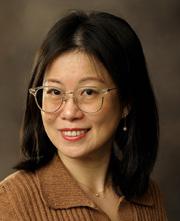

A project led by Assistant Professor Matthew Turk was among the napari plugin projects that received support from the Chan Zuckerberg Initiative in its effort to advance bioimaging technologies. Visiting Research Scientist Christopher Havlin serves as co-principal investigator on the project, “Enabling Access to Multi-resolution Data,” which will build a napari plugin allowing access to more complex data storage formats.

The Community Data Clinic, led by Associate Professor Anita Say Chan, received a $50,000 grant to address gaps in household access to computing devices, hotspot connectivity, and digital literacy skills in East Central Illinois. The grant is part of the Broadband Regional Engagement for Adoption and Digital Equity (READY) program, which is operated through the governor’s office and Illinois Department of Commerce and Economic Opportunity.

Associate Professor Jodi Schneider was awarded a $416,760 Early Career Development grant from the Institute of Museum and Library Services for her project, “Strengthening Public Libraries’ Information Literacy Services through an Understanding of Knowledge Brokers’ Assessment of Technical and Scientific Information.” The project aims to understand how journalists, librarians, Wikipedia editors, activists, and other knowledge brokers assess the quality of information. The ultimate goal is to provide libraries with actionable information that will help them support citizens in finding trustworthy sources for societally relevant technical and scientific knowledge.
Research Scientist Anita Nikolich, director of research and technology innovation, is co-principal investigator on a multi-institutional, interdisciplinary research team that has been awarded $750,000 to develop digital literacy tools to curb the deleterious effects of online disinformation.

The project, “A Disinformation Range to Improve User Awareness and Resilience to Online Disinformation,” is funded by the National Science Foundation’s Convergence Accelerator and involves Assistant Professor Rachel M. Magee and Adjunct Lecturer Dan Cermak


Associate Professor Yang Wang is the principal investigator on a two-year, $297,575 National Science Foundation (NSF) Early-Concept Grant for Exploratory Research (EAGER) to incorporate ethics in the development of technology. Associate Professor Yun Huang is among the co-investigators on the project, which is titled, “Teaching High School Students about Cybersecurity and Artificial Intelligence Ethics via Empathy-Driven Hands-On Projects.”

Associate Professor Yang Wang is a principal investigator on a multiinstitutional project that will empower people who are blind to independently safeguard information in their pictures and videos. “Novel Algorithms and Tools for Empowering People Who Are Blind to Safeguard Private Visual Content,” received a four-year, $1,199,993 grant from the National Science Foundation, with the U of I team led by Wang receiving $315,931.




Assistant Professor Jessie Chin received funding for a collaborative project that seeks to boost hemodialysis patients’ commitment to exercise through interaction with a motivational interviewing chatbot. “Development of a Chatbot for Delivering Long-Term Motivational Interviewing for Improving Exercise Adherence in Hemodialysis Patients,” was awarded a $75,000 grant through Jump ARCHES, a partnership between OSF HealthCare and the Grainger College of Engineering at the University of Illinois Urbana-Champaign, and the University of Illinois Chicago of Medicine Peoria.


Associate Professor Jodi Schneider is principal investigator on a $249,998 grant from the Alfred P. Sloan Foundation and the National Information Standards Organization (NISO) to create consistent community practices for publishers, preprint repositories, and discovery services to identify and signal that publications are retracted or have expressions of concern, thereby reducing the real and perceived harm to science and society when retracted research is inadvertently propagated within the digital scholarly record.
Assistant Professor Jessie Chin served as co-principal investigator on “The Fireside Exploration Project,” a $146,937 project funded by Napoleon Fireplaces to examine the effects of environments on enrichment-seeking behavior among middle-aged and older adults. The study utilized a state-ofthe-art smart home simulation environment with conversational agents to guide participants. Wearable devices, cognitive games, and conversational data were used to investigate the physiological, affective, and behavioral dimensions of well-being.

Associate Professor Yang Wang received a one-year, $100,000 grant from Meta for his project, “Global South Citizens’ Privacy Perceptions and Management of Targeted Ads on Social Media.” The goal of the project is to learn from users in the Global South, with a focus on India and Bangladesh, about their experience with targeted ads.
Associate Professor Halil Kilicoglu is principal investigator on a two-year, $300,000 grant awarded by the U.S. Department of Health and Human Services Office for Research Integrity. “Natural Language Processing to Assess and Improve Citation Integrity in Biomedical Publications” will develop and validate resources and NLP/AI models to aid stakeholders— including authors, peer reviewers, funders, and policymakers—in assessing biomedical publications for citation accuracy and integrity. Associate Professor Jodi Schneider is senior personnel on the project.

iSchool researchers leverage the power of information to inform decision making and develop solutions to society’s pressing challenges.








Our research focuses on the intersection of people, information, and technology, drawing on cross-disciplinary expertise through collaboration with scholars around the world.
A natural language processing (NLP) system codeveloped by Professor Catherine Blake provides an automated approach to risk assessment that moves beyond the retrieval of relevant literature to the extraction step of information synthesis, characterizing evidence as supporting, refuting, or neutral with respect to a given outcome. The approach was described in the paper “Using semantics to scale up evidence-based chemical risk-assessments,” which was published in the peer-reviewed open access journal PLOS One

Associate Professor Jingrui He presented a keynote lecture, “Towards Understanding Rare Categories on Graphs,” at the Machine Learning on Graphs Workshop during the 15th Association for Computing Machinery (ACM) International WSDM Conference, one of the premier conferences on web-inspired research involving search and data mining.

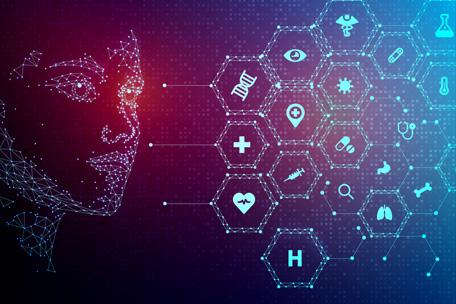
Associate Professor Anita Say Chan received funding to lead two projects as part of the Call to Action Research Program to Address Racism and Social Injustice, a $2 million annual commitment by the U of I to respond to the need for universities to prioritize research focused on systemic racial inequities and injustices. The projects are “Dignifying Digital Connection: Addressing Race and Class Privilege in Broadband Infrastructures for East Central Illinois Families, Students and Seniors” and “Reparative Data and Media Initiative: Extending Racial and Research Justice in Champaign County.”


Associate Professor Emily Knox delivered the Masha Dexter Lecture on Gender, Sexuality, and Public Policy at Brown University. Her presentation, “Intellectual Freedom and Social Justice: Understanding the Discourse of Censorship,” addressed the underpinnings of contemporary book bans and provided recommendations for how to address book censorship in schools and public libraries.
Research Scientist Ian Brooks, director of the Center for Health Informatics (CHI), presented a keynote, “Information Systems for Health and the Digital Transformation of Healthcare,” at the West Africa Conference on Digital Public Goods and Cybersecurity. He discussed CHI’s work with WHO/PAHO on Information Systems for Health (IS4H), a project that supports countries in defining strategies, policies, standards for interoperable and interconnected systems, and best practices in health data management for improved decision-making and well-being.
The Center for Health Informatics (CHI) is developing the WHO/PAHO Anti-Infodemic Virtual Center in response to threats posed by misinformation and the infodemic. This proof-of-concept project, supported by the WHO COVID-19 Solidarity Response Fund, provides Ministries of Health with primers, threat-detection and evaluation materials, and response-preparation strategies to help manage and combat health-related misinformation. The research team includes Associate Professor Kate McDowell.

iSchool faculty are leaders in the information sciences, recognized for their expertise through scholarly contributions and engagement that advance the field.


Associate Professor Carol Tilley was selected to serve as a judge for the 2022 Lynd Ward Graphic Novel Prize, which is presented to the best graphic novel, fiction or nonfiction, published in the previous year by a living U.S. or Canadian citizen or resident.
Associate Professor Kate McDowell was named the 2022 recipient of the Outstanding Information Science Teacher Award from the Association for Information Science and Technology (ASIS&T). The award recognized her unique contributions to information science education that reside at the intersection of storytelling and data science.
Associate Professor Maria Bonn was elected to a threeyear term on the Board of Directors of the Association for Information Science and Technology (ASIS&T). Her research focuses on scholarly communication and open culture and on collaboration in the humanities.

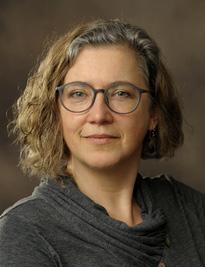

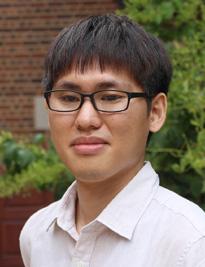

Assistant Professor JooYoung Seo was named an Emerging Scholar by the International Society of the Learning Sciences (ISLS), which is dedicated to the empirical investigation of learning in real-world settings and the use of technology-facilitated learning. ISLS provided a $10,000 grant for Seo’s project, “Data Accessibilization: Making Data Science Education Accessible for Blind Learners.”


Research Scientist Anita Nikolich, director of research and technology innovation, was selected to serve a three-year term on the National Science Foundation (NSF) Advisory Committee for Cyberinfrastructure (ACCI). Comprised of distinguished members representing diverse science, engineering, and computational science communities, the ACCI helps ensure that NSF-supported cyberinfrastructure is “responsive to changing technology and science landscapes and enables significant advances across all fields of science and engineering supported by the agency.”
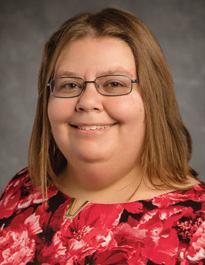

Associate Professor Jodi Schneider received a National Science Foundation (NSF) CAREER award to iteratively develop and test a novel framework of tools and workflows that will show stakeholders potential sources of bias in expert literature.


Her project, “Using Network Analysis to Assess Confidence in Research Synthesis,” will be supported by a five-year, $599,963 grant. This prestigious award is given in support of early-career faculty who have the potential to serve as academic role models in research and education and to lead advances in the mission of their department or organization.
Adjunct Lecturer Melissa A. Wong was selected as the 2022 winner of the Isadore Gilbert Mudge Award, the Reference and User Services Association’s highest honor, for her contributions to the field of reference librarianship during her distinguished career.




BS/IS student Luke Emano was selected as a recipient of a Research Support Grant for his project, “Time is Value: Exploring the Barriers of Scalability for Timebanks.” The award, worth $1,000, is sponsored by the Office of Undergraduate Research. Emano was first introduced to Timebanking in Associate Professor Yang Wang’s course, Introduction to HCI, and was immediately struck by its potential to help the world through the human connections it creates.

With innovation and enthusiasm, our students turn ideas into action by implementing research and projects that garner praise and recognition.

MS/LIS student Ben Ostermeier curated a digital exhibit for the U of I Rare Book and Manuscript Library titled “Starkiller to Skywalker: How Star Wars Evolved from Script to Screen.” The work began as a project for the Data Science in the Humanities course he took with Professor Ted Underwood in which Ostermeier studied the portrayal of gender in Star Wars films throughout their 40-year history by creating a data set of the original and sequel trilogies.


A paper coauthored by Associate Professor Yang Wang, PhD student Smirity Kaushik, and researchers from the University of Maryland and KU Leuven received the International Association of Privacy Professionals (IAPP) SOUPS Privacy Award. “‘How I Know for Sure’: People’s Perspectives on Solely Automated DecisionMaking (SADM)” was recognized at the 17th Symposium on Usable Privacy and Security (SOUPS 2021), which brings together researchers and practitioners in humancomputer interaction, security, and privacy.



BS/IS student Alistair Nunn was named by the National Center for Supercomputing Applications (NCSA) as a 2021 Fiddler Innovation Undergraduate Fellow for their work on a natural language processing project with the NCSA’s Advanced Visualization Lab (AVL). Their project, for which Teaching Assistant Professor Jill Naiman served as a mentor, used machine learning to build an impact classification model based on Amazon and YouTube reviews for scientific documentaries. The fellowship, which includes a $1,500 award, recognizes contributions to research for real-world impact and solutions.
Dianah
Rezvaneh

BS/IS student Hanyu (Zella) Zhao participated in a project that used data analytics to examine trends in pop culture. Professor Michael Twidale mentored her during the project, in which a team of undergraduates created a database of celebrities who appeared on the covers of Rolling Stone magazine from 1967 to 2021. The students then used data visualization to identify changes in and attitudes toward the music industry during certain societal eras.


“From

